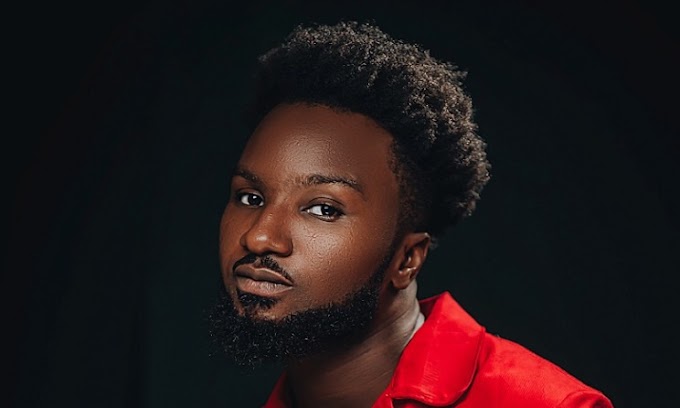Introduction
Ghanaian Afrobeats artists have been making significant strides in the global music scene, captivating audiences with their unique flavor and infectious rhythms. While Nigeria has long dominated the new wave Afrobeats genre, Ghana is steadily emerging as a force to be reckoned with, both within the continent and beyond. Artists like Stonebwoy, Gyakie, and Shatta Wale are leading the charge, gaining international recognition and amassing a massive following. In this article, we will explore the rise of Ghanaian Afrobeats, its distinct characteristics, and the challenges and opportunities that lie ahead for the industry.
The Legacy of Highlife and the Emergence of Ghanaian Afrobeats
Ghanaian Afrobeats is deeply rooted in the country's rich musical heritage, particularly the genre known as Highlife. Highlife originated in the early 19th century, adapting traditional rhythms of the Ashanti people to Western instruments brought by the colonizers. It propelled Ghana onto the international music scene, with iconic groups like Osibisa filling stadiums in the 1970s. However, the recent popularity of Afrobeats is of a different nature, driven by the internet and the ability of young Ghanaian artists to achieve viral success quickly.
The Distinct Flavor of Ghanaian Afrobeats
Ghanaian Afrobeats adds a unique spin to the broader Afrobeats umbrella, incorporating elements of Highlife and other traditional Ghanaian rhythms. The result is a captivating fusion of infectious rhythms, soulful melodies, and powerful vocals. Wanlov the Kubolor, a Ghanaian musician and filmmaker, describes Ghanaian music as more complex and advanced compared to certain parts of Africa. The presence of polyrhythms and grooves sets it apart from the straight four-four beats found in East African music.
Ghanaian Afrobeats Artists Making Waves
Ghanaian Afrobeats artists are making a significant impact on the global music scene, garnering millions of followers and streams across various international platforms. Stonebwoy, with his numerous international accolades, exemplifies the growing prominence of Ghanaian artists. His music, influenced by Jamaican dancehall and reggae, resonates with a diverse audience. Stonebwoy's success is not an isolated case; artists like Gyakie, Joey B, KiDi, Sarkodie, and Shatta Wale have also gained substantial followings both within and outside Africa.
Afrobeats Festivals and International Recognition
The rise of Afrobeats has paved the way for the emergence of Afrobeats festivals worldwide. Ghanaian artists, alongside their Nigerian counterparts, are increasingly being invited to perform on international stages, showcasing the vibrancy and diversity of West African music. Stonebwoy acknowledges the growing recognition of Afrobeats on the international stage, with festivals popping up in Europe and a dedicated fan base in countries like India and Bangladesh.
Challenges and Opportunities for Ghanaian Afrobeats
While Ghanaian Afrobeats continues to gain momentum, the local music industry faces its fair share of challenges. One such challenge is the lack of a structured and funded industry, which can hinder the growth and development of artists. GHAMRO, the Ghana Music Rights Organization, is responsible for collecting royalties on behalf of musicians but lacks effective playlist monitoring to ensure that artists receive their rightful earnings. Additionally, the COVID-19 pandemic has dealt a severe blow to the music sector, with canceled festivals and concerts impacting artists' income.
The Role of Ghanaian Artists in Shaping the Industry
Ghanaian artists play a crucial role in shaping the future of the Afrobeats industry. Their ability to blend traditional Ghanaian music with international influences has contributed to the genre's global appeal. Stonebwoy, for instance, infuses his music with elements of both traditional and foreign genres, creating a sound that resonates with people from all walks of life. This unique approach allows Ghanaian artists to carve out their own space within the broader Afrobeats movement.
The International Recognition of Ghanaian Afrobeats
The international recognition of Ghanaian Afrobeats is evident in the growing interest and demand for Ghanaian music. Streaming platforms like Aftown have witnessed a surge in listenership, with Stonebwoy's latest album garnering over a million streams in just one week. The signing of Ghanaian artists by major international labels, such as Gyakie's contract with Sony Music, further solidifies the global appeal of Ghanaian Afrobeats.
The Future of Ghanaian Afrobeats
As Ghanaian Afrobeats continues to evolve and gain global recognition, the future looks promising for the genre and its artists. With the right support and infrastructure, Ghana has the potential to become a major hub for Afrobeats music production and distribution. The government, alongside industry stakeholders, must work together to create an enabling environment that fosters the growth of the music industry. This includes implementing effective copyright protection measures, establishing music education programs, and providing financial support to emerging artists.
Conclusion
Ghanaian Afrobeats is making waves in the global music scene, captivating listeners with its infectious rhythms and unique fusion of traditional and contemporary influences. Artists like Stonebwoy, Gyakie, and Shatta Wale are leading the charge, gaining international recognition and amassing a massive following. While challenges exist, such as the need for a structured industry and the impact of the COVID-19 pandemic, the future looks bright for Ghanaian Afrobeats. With the right support and infrastructure, Ghana has the potential to become a powerhouse in the Afrobeats genre, contributing to the continued growth and evolution of African music on the global stage.
Additional Information:
- The rise of Afrobeats has led to the emergence of Afrobeats festivals worldwide, showcasing the vibrancy and diversity of West African music.
- Ghanaian artists are blending traditional Ghanaian music with international influences, creating a unique sound that resonates with a global audience.
- Ghanaian Afrobeats artists have been signed by major international labels, further solidifying the global appeal of the genre.
- The government and industry stakeholders must work together to create an enabling environment for the growth of the music industry, including implementing effective copyright protection measures and providing financial support to emerging artists.













0 Comments